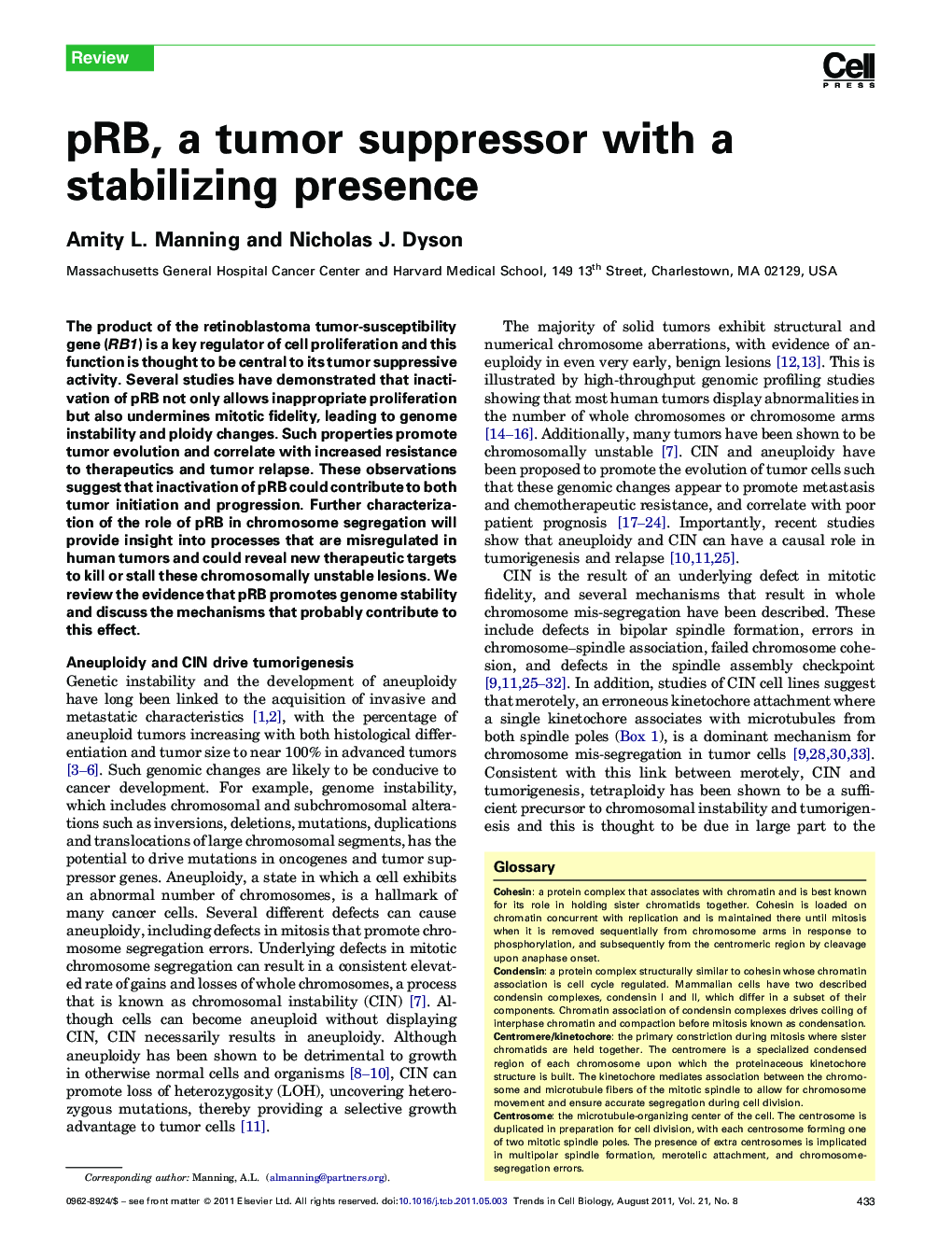| Article ID | Journal | Published Year | Pages | File Type |
|---|---|---|---|---|
| 2204642 | Trends in Cell Biology | 2011 | 9 Pages |
The product of the retinoblastoma tumor-susceptibility gene (RB1) is a key regulator of cell proliferation and this function is thought to be central to its tumor suppressive activity. Several studies have demonstrated that inactivation of pRB not only allows inappropriate proliferation but also undermines mitotic fidelity, leading to genome instability and ploidy changes. Such properties promote tumor evolution and correlate with increased resistance to therapeutics and tumor relapse. These observations suggest that inactivation of pRB could contribute to both tumor initiation and progression. Further characterization of the role of pRB in chromosome segregation will provide insight into processes that are misregulated in human tumors and could reveal new therapeutic targets to kill or stall these chromosomally unstable lesions. We review the evidence that pRB promotes genome stability and discuss the mechanisms that probably contribute to this effect.
